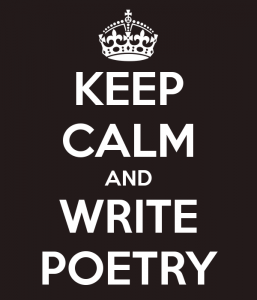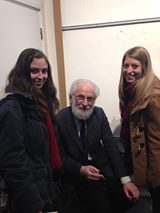A cat,
Sat on a mat,
He heard a rat-a-tat-tat…
Writing creatively can be inspiring, a release and downright terrifying!!
Do you remember the first time your teacher asked you to write a poem? I do, palms sweating, throat thickening, so overcome by nerves and anxiety that staring at a blank piece of paper seemed to be all that was happening. ‘What ifs’ running round and round my head – ‘What if’ I can’t think of the right word? ‘What if’ it doesn’t make sense? And worst of all, ‘What if’ it’s rubbish?!
I find writing poetry fascinating because it offers a glimpse like no other into a person’s inner soul. On the other hand, that’s exactly what makes it so scary.
‘What if’ I wear my wear my heart on my sleeve? I let strangers and, worse yet, people I know uncover my inner thoughts on life, on my perception of the world and – God forbid –on love.
And ‘what if’ I can’t think of any ideas? It’s one thing writing when I’m inspired, but writing on demand is a whole other matter! ‘What if’ I haven’t seen a butterfly with wings that resemble Joseph’s techni-coloured dreamcoat and my boyfriend hasn’t torn my heart in two, or overwhelmed me with romantic gestures? Without a stimulus where do I begin?
I might just about manage to find a theme, but then what on earth should be happening in the lines? Did someone forget to teach poets the rules of grammar? Why do some lines stop at the end while others trail on and others finish with the introduction of a new subject?! My head is spinning and all the while the page remains blank.
Poetry is a story
that is so good,
it doesn’t need
complete sentences.
So here’s a little guide, a ‘how to’ if you will, to help you get started on writing poetry.
First of all, don’t panic. Unless you can articulate this feeling in a figurative way then it is of little use and will only hinder your creativity. Second, don’t worry about the language. Once you find the stimulus the words will naturally come. So, where to begin?
- You could start with an image from the natural world: flowers, clouds, muddy puddles….
- Something from the built environment: a house, a place of study, a dry cleaners, a chip shop…
- Something from the news: a headline, something that evokes an emotion from you…
- A person: someone you love, hate, who inspires you, motivates you, irritates you…
- A regular habit: tutting, sighing, tapping a pen…
You could start by writing down one of these points, a few of these points, or even all five of them and then leave them for a little while. Let the thoughts unconsciously stew over in your mind and come back to play around with them later. See what inspires you, what fits and what can be cut out or changed.
Another brilliant tip is to take a poem you already know and use the structure but change the language so that each word is replaced with another. The result will be a poem with the same format as the original but with a completely different theme – as such, a completely different poem. This technique is a great place to start as it gives you a feel for a poem’s structure without being too overwhelming (although if you’re using it for your studies, always be sure to reference the original poem and credit the author to avoid being accused of plagiarism). Then, as you get to grips with a wider variety of formats, you will find it easier to instinctively construct your own stanzas.
When it comes to poetry writing, practice really does make perfect so just…
And remember, it doesn’t HAVE to rhyme.
…Coming from the flat,
Suddenly out flew a bat,
Called Matt.


